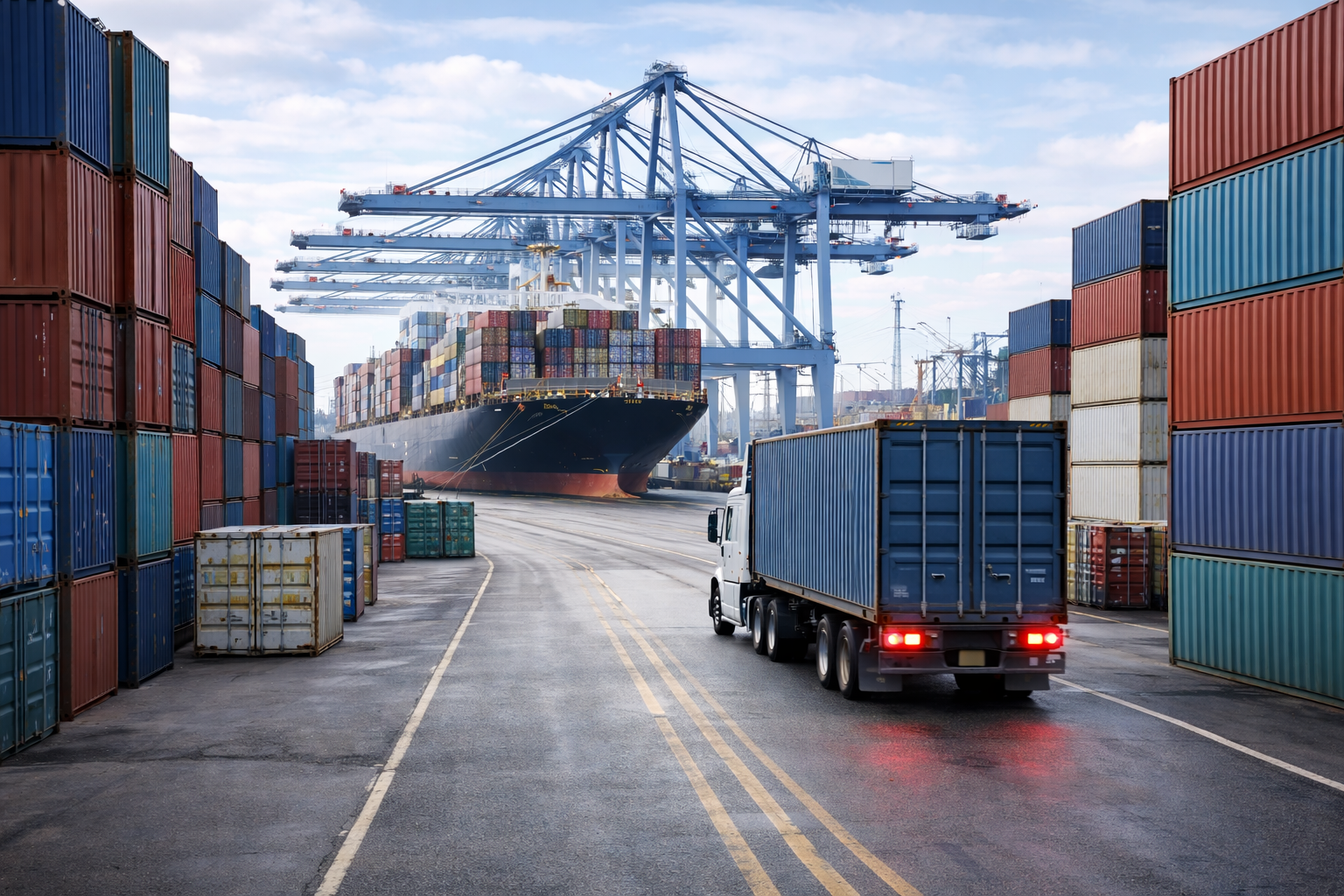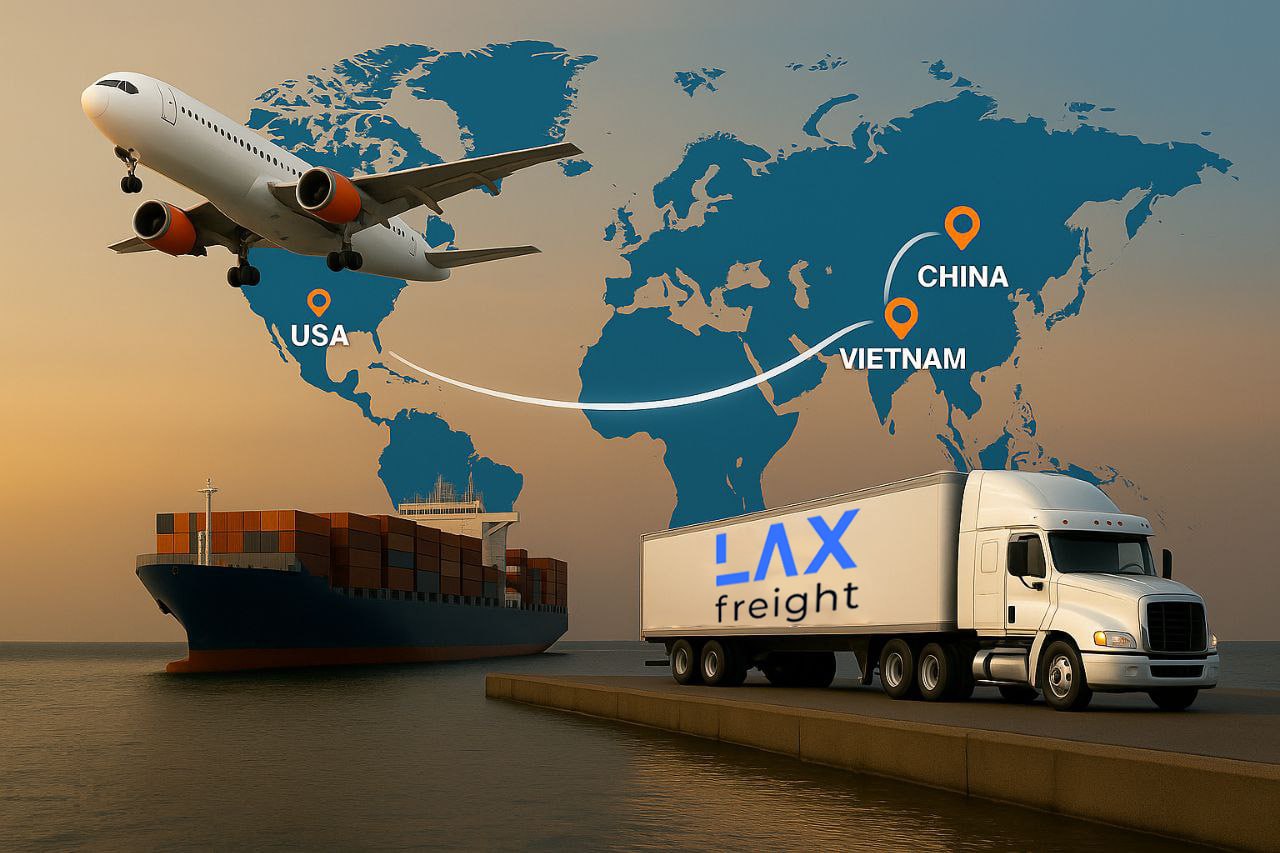Working in the trucking industry requires strict adherence to regulations and safety standards, especially for drivers. Truck insurance is a vital component of regulatory compliance. This is also essential for protecting motor carriers, companies, and the public from financial loss in case of accidents, theft, or other issues.
You should understand the specifics and coverage limits of different commercial truck insurance types to choose the most suitable one and ensure full protection from trucking risks for your operations.

Types of Insurance Truck Drivers Need
Commercial truck insurance can come in different coverages, each covering specific trucking risks. Choosing the right commercial truck insurance policy ensures you and your truck are well-protected on the road and ready to face unexpected issues. There’s a list of the fundamental types of insurance every trucker should consider to ensure their operations are covered fully.
Primary Liability Insurance
Primary liability insurance is the basis of any commercial trucking insurance policy. The Federal Motor Carrier Safety Administration (FMCSA) requires all commercial auto drivers and companies to have minimum primary liability insurance to operate legally. This truck insurance covers the expenses of injuries and property damage caused to others if the trucker is responsible for an accident.
It’s one of the main requirements for any driver who wants to operate legally in the sector. Otherwise, employees and companies can face expensive lawsuits that could affect their financial stability.
Primary liability insurance doesn’t cover the driver’s injuries or damages to their vehicle. If you want to insure yourself and avoid property damage, you should consider additional coverages.
General Liability Insurance
In contrast to primary liability insurance, general coverage provides an extra layer of security in case of incidents off the road. This is essential for covering costs related to issues that occurred on the company’s premises or during the handling of cargo.
This commercial truck insurance covers a bodily injury or property damage related to products or services the trucking business provides and claims that aren’t directly related to driving incidents.
General liability coverages protect from legal issues and third-party claims unrelated to vehicle accidents. This allows you to save money, protecting from costly lawsuits and damages.
This coverage is often overlooked. However, it’s crucial for truck drivers who spend time loading or unloading cargo or for a company with employees who work on-site.
Physical Damage Insurance
Purchasing a truck requires significant investments that can be challenging, especially for newcomers to the transportation industry. Thus, many drivers seek to protect their vehicles, often costing hundreds or thousands of dollars. Physical damage insurance covers the repair or replacement costs if a truck is damaged due to a collision or other events like natural disasters or theft.
It covers damage from accidents, fire, theft, vandalism, and natural disasters. Thus, this trucking insurance provides compensation for expenses for repairs, preventing disruptions to their trucking business and securing trucks as their assets.
While the FMCSA and other authorities don’t require physical damage coverage, it’s highly recommended. It can be especially useful for small business truckers or owner-operators who depend on their vehicles for income. It’s an essential part of truck commercial insurance, allowing drivers to return to the road quickly after the damage.
Specialty Coverages for Trucking Industry
In addition to primary policies, you can obtain special coverages that cater to the unique needs of the trucking industry. These policies provide coverage based on the truck’s usage and the nature of the cargo you transport.
Cargo Insurance
Cargo insurance is needed if you handle high-value items. These coverages protect the value of the cargo in case of theft, accident, or damage. With it, a company can obtain peace of mind and avoid claims from customers when hauling valuable or sensitive cargo.
Non-Trucking Liability Coverage
Non-trucking liability (NTL) covers the truck when it’s used for personal use. For instance, it’s necessary to insure trucks when drivers use their commercial auto on personal time. This will be especially useful for independent owner-operators who sometimes drive commercial trucks off-duty or without an active load.
Trailer Interchange Coverage
Trailer interchange insurance is needed to cover you from damages to trailers that aren’t owned by you but are used under a trailer interchange agreement. Drivers involved in such types of agreements with other trucking companies or operators need it.
This coverage is recommended for truckers with specific business models or hauling needs. It adds one more layer of protection tailored to the specific driver’s operational requirements.
Additional Insurance Options for Truck Drivers
Beyond the core commercial trucking insurance, several coverage options can enhance a truck diver’s financial security and peace of mind. Each option provides a specific type of protection that can benefit the driver’s work conditions and preferences.
Medical Payments Coverage
This insurance covers medical expenses for the motor carrier and passengers after an accident, regardless of fault. It can help cover immediate medical costs and limit out-of-pocket expenses.
Uninsured/Underinsured Motorist Coverage
It provides compensation if the truck driver is injured in an accident caused by another driver without adequate commercial auto insurance. This coverage is valuable for drivers who spend extensive time on the road, where exposure to uninsured drivers is risky.
Worker’s Compensation
It offers wage replacement and medical benefits to injured drivers while performing job-related duties. This coverage is important for businesses employing drivers, ensuring enough support if they can’t work due to bodily injury.
Coverage Considerations for Different Types of Truck Drivers
Not all truck drivers need the same level of commercial truckers insurance, while all of them need enough protection for their unique conditions. The type of needed coverage depends on whether you’re an owner-operator, a company-hired driver, or a leased owner-operator.
Owner-operators
They run trucks under their own authority, working independently or contracting with businesses. An owner-operator usually needs comprehensive insurance coverage, such as primary liability, physical damage, and cargo coverage. This can provide them protection for their operations and investment in a truck purchase and other equipment.
Company Drivers
Company-hired drivers are covered by their company’s commercial insurance for trucks. Typically, it includes primary and general liability. However, additional options, like non-trucking liability, may be helpful if they need to cover the truck during personal use.
Leased Owner-Operators
These drivers lease their services to trucking companies. Often, the company provides primary liability coverage. Still, a leased owner-operator should add non-trucking liability insurance coverage and physical damage truck insurance to protect themselves when they’re off-duty or using the truck for personal reasons.
Factors That Influence Trucking Insurance Costs
The cost of commercial truck insurance varies based on several factors. Understanding these factors helps commercial drivers and businesses plan financially and find the best commercial truck insurance policy to suit their budgets.
The common factors are:
Driving record. Truckers with a clean driving history without accidents or violations can obtain lower rates.
Vehicle type, age, and condition. Newer commercial trucks with advanced safety features often result in lower commercial trucking insurance rates compared to older vehicles.
Cargo type. Truckers who haul high-risk or hazardous materials often face higher premiums due to increased risk.
Mileage and routes. Insurance providers assess risk based on how many miles a truck is driven and the types of routes it takes. High-mileage trucks or vehicles in high-traffic areas may face higher premiums.
Other factors include the driver’s experience, the state or state of operation, and the company’s claims history. All this influences the cost and availability of commercial truckers insurance.
Tips for Finding the Best Trucking Insurance
Finding the right commercial truck insurance can be challenging, as there is a range of insurance coverage available. You can follow these tips to make an informed decision and choose the best option for your operations.
Evaluate your coverage needs. Understanding your needs is the initial and the main step. Consider which policies are essential for your business type (large fleet or small business), whether you need NTL coverage or cargo insurance. You should assess any needs related to your cargo or truck to ensure your business is covered properly.
Shop around for quotes. Many insurance businesses offer competitive rates for different coverage options. Compare commercial truck insurance quote options proposed by different truck insurance companies to get affordable prices for the insurance coverage you need.
Ask about discounts. Many commercial trucking insurance providers offer discounts for safe driving records, installing safety devices, bundling policies, or even taking defensive driving courses.
Consider deductibles. Higher deductibles can lower truck insurance premiums. However, it may lead to larger expenses in the event of a claim. Balance the budget of your company with a realistic view of what you can afford if you need to file a claim.
Consult an insurance specialist. You can consult a commercial truck insurance agent or broker who specializes in trucking insurance. They can give you a better understanding of the different policies and requirements of the industry, guide you through the options, and help you build a comprehensive truck insurance plan.
Conclusion
In the complex trucking industry, commercial insurance for trucks is a necessity. It provides essential coverage for drivers, covering everything from accidents and injuries to liability and cargo loss. With the right policies, you can protect your operations, secure the vehicle and cargo, and ensure peace of mind on the road.
Reliable commercial truck insurance safeguards your assets and strengthens your ability to navigate the challenges of the trucking industry.


